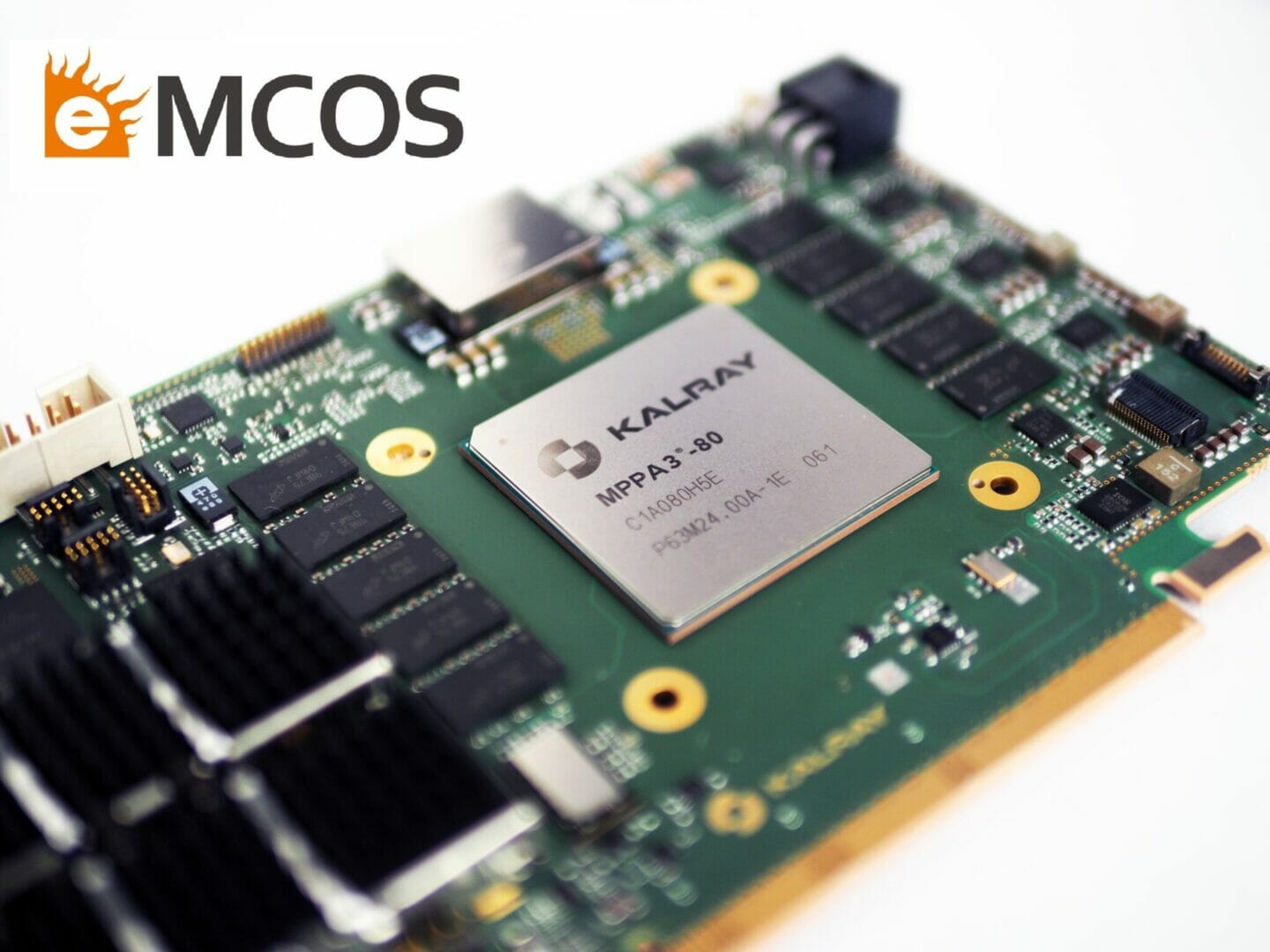High Performance, Low Power Consumption of Third-Generation MPPA® from Kalray now Available on Same Terms as Existing Multi-core Processors to Suit Applications such as Autonomous Driving, Edge Computing, Robotics and Medical Equipment
Tokyo, Japan, July 2, 2020 – The eMCOS® POSIX high-performance, scalable real-time operating system (RTOS) from eSOL (Tokyo Stock Exchange First Market: 4420), a leading developer of real-time embedded software solutions, now supports the Coolidge™ third-generation MPPA® (Massively Parallel Processor Array) intelligent processor developed by Kalray. As a result, developments based on the MPPA Coolidge can be brought to market for advanced applications such as Autoware and AUTOSAR Adaptive Platform software for autonomous driving, as well as ROS[2] for robotic control. Further notable applications include edge computing, data centers, medical equipment, high-performance computing (HPC) and machine learning (ML). Importantly, developers will be able to access the extremely high computing performance and low power consumption of the MPPA Coolidge (80 cores) on the same terms as existing multi-core processors. For eSOL it ultimately means the ability to offer a POSIX-compliant, secure software platform that takes advantage of the Coolidge ‘manycore’ architecture.
eMCOS POSIX complies with the POSIX PSE53 profile for running multiple processes. A proprietary distributed microkernel architecture extracts maximum performance from the MPPA Coolidge manycore processor and provides scalable support across different processor configurations, ranging from single-core through to multi-core, many-core and multi-chip. Scalable support is also provided, not only in homogenous settings that lack a cache coherence mechanism, but for heterogeneous configurations combining different architectures.
The safety of the eMCOS platform is delivered by eliminating single points of failure and providing freedom from interference (FFI) in the software that mixes different automotive safety integrity levels (ASILs), an essential requirement of Functional Safety (FuSa) standards.
As a point of note, an optimized development environment and tools are available for creating advanced applications with multiple POSIX processes targeting the MPPA Coolidge.
In heterogeneous hardware configurations, eMCOS supports a variety of profiles that include POSIX, AUTOSAR and a hypervisor. This flexibility enables the RTOS to deliver optimal computing performance from MPPA Coolidge, which can be used as a stand-alone embedded platform that mixes functions with different criticalities on the same chip, or as an accelerator delivering high performance when combined with a separate host processor.
“By adding support for MPPA Coolidge, eMCOS POSIX has become the world’s first commercially available full POSIX OS to run on 80 cores,” said Bob Nobuyuki Ueyama, Executive Vice President of eSOL. “eSOL intends to continue working closely with Kalray to supply platforms for intelligent systems that provide superior computing performance, energy efficiency, real-time capabilities, and safety and security.”
Stéphane Cordova, VP Embedded Solutions at Kalray, added: “We have engaged with eSOL as part of a technical and strategic collaboration for many years, and this latest development highlights what we can achieve together for the benefit of customers. Moving forward, we intend continuing this teamwork to supply secure software platforms that combine high performance and safety for a wide range of advanced and demanding applications such as Autonomous Driving, industrial equipment, robotics, medical devices and edge computing.”
[1] Mixed-Criticality Systems are systems that combine functions with different reliability and safety level requirements
[2] Robot Operating System








